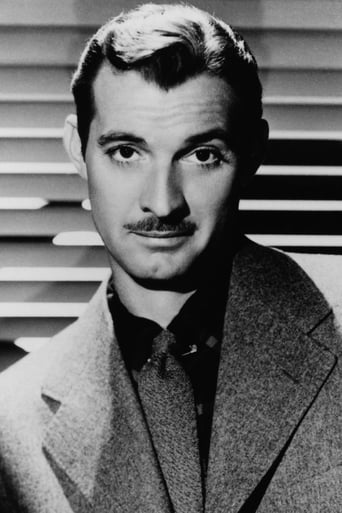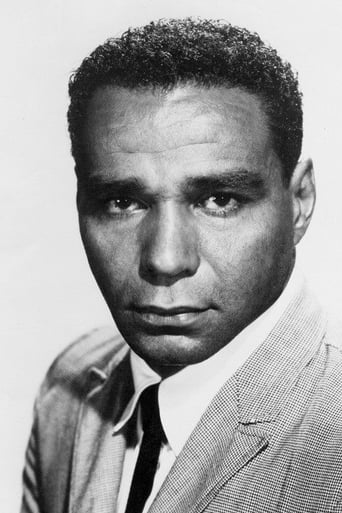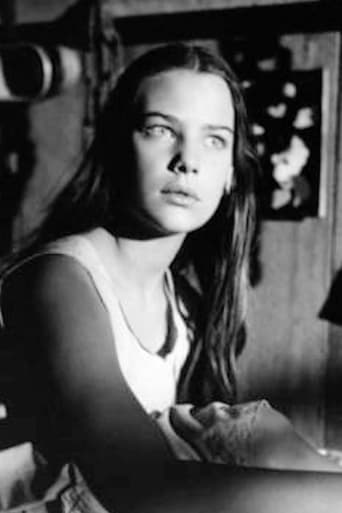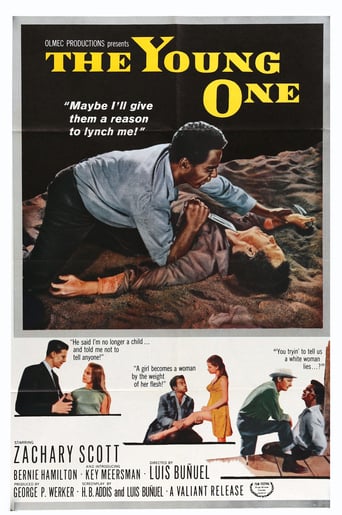
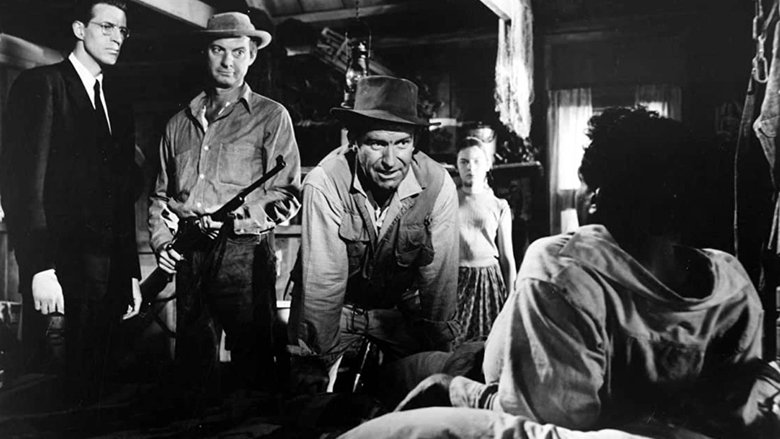
The Young One (1960)
A jazz musician seeks refuge from a lynch mob on a remote island, where he meets a hostile game warden and the young object of his attentions.
Watch Trailer
Cast


Reviews
Dear Luis Bunuel fans, The Young One (1960) is a rather andante thriller that takes place on an island not far away from civilization. A black jazz musician on the run from the law stumbles upon a girl and her caretaker living on the island. Bunuel offers thrills in small doses. Whether it is the lovely legs and feet of the adolescent girl. Or her dancing to the tune of the runaway jazz singer. There is no excess of drama like in an American film. Bunuel keeps it real. Even the ending is very believable. There is no forced horrible ending for all parties. Some lessons are learned. Racism is an eventuality of willful ignorance and even guilt.The film does take you into a secluded and idyllic world.The song at the beginning sounded a bit fake. It is an English language film and I recommend it. Best Regards, Pimpin. (8/10)
A black jazz musician on the run from a lynch mob stumbles across the game warder of a private island and the young, innocent girl the warder guards over. Sweet and precocious Evy is almost completely unaware of the world outside her isolated island and unable to defend against the advances of her guardian, while also not comprehending the nature of the problem with the musician's arrival.Bunuel's more well-known films are very impressive, but some of his lesser-known films aren't given enough attention for what they are. "La Joven" is a parable of innocence brought suddenly up against racism, exploitation, and sex, and as a whole is a very morally ambiguous film. Ultimately, the question must be asked: is one man's life being paid for by the freedom of a young girl, or will she choose a different, completely unfamiliar life full of its own trials? Those are the questions left with the audience by the movie's conclusion.Bunuel's mastery is reinforced by how well he is able to get into the regional dialect, settings, and character of this film. Here is a director who has shot movies from all over the world and managed to give a rather distinctive feel for each of the locations they've been made in.--PolarisDiB
Leonard Maltin's *1/2 review of this bafflingly overlooked Bunuel gem – which, more by accident than design, has become one of my favorite film-maker's most-watched efforts – seems, thankfully, to be a minority opinion nowadays and, in fact, renowned critic Jonathan Rosenbaum (albeit contending elsewhere that this was the Spaniard's biggest critical and commercial disappointment) wrote about it in Steven Jay Schneider's "1001 Movies You Must See Before You Die" when Bunuel's much more renowned THE EXTERMINATING ANGEL (1962) is conspicuous by its absence therein! Incidentally, an almost equally obscure fate is shared by the film's immediate predecessor, REPUBLIC OF SIN (1959; which is still pretty hard to come by, though I did catch it once on late-night Italian TV): perhaps, this is because both films were squeezed in between two unexpectedly mature and highly personal works – NAZARIN (1959) and VIRIDIANA (1961)...Anyway, THE YOUNG ONE is only the director's second English-language film, after ROBINSON CRUSOE (1952), and it also proved to be his last. Plot-wise, it's a hothouse melodrama (which has been considerably altered from the original two-hander short story source) quite typical of his low-budget Mexican output: a bigoted game warden (Zachary Scott) lives on a remote stretch of land – the film was shot in Mexico but the setting is clearly intended to be the American South – with his elderly alcoholic assistant (who has just died when the story opens) and the latter's sensual but naïve teenage grand-daughter (Key Meersman). This situation seems to please Scott, as he suddenly realizes that the girl is no longer a child – but their quiet life is unexpectedly turned upside down with the arrival of a black musician from the mainland (Bernie Hamilton), on the run after an older white woman accused him of rape! Scott (whose character might very well represent the way his beleaguered but optimistic farmer from Jean Renoir's THE SOUTHERNER [1945] – which, incidentally had been adapted for the screen by the blacklisted co-writer of both ROBINSON CRUSOE and THE YOUNG ONE, Hugo Butler – would turn out under different circumstances!) is absent when Hamilton lands on the island. The latter strikes up a friendship with Meersman, while being embarrassed by her apparent lack of morals (which stacks the sympathy cards in his favor...though, on butting heads with Scott eventually, he loses no opportunity to address him as "white trash")! A battle of wills between the two soon manifests itself: Scott shoots holes in Hamilton's boat and then takes a pot shot at the man himself; the latter turns up enraged at Scott's cabin and manages to disarm him; the warden is thus forced to accept the black man into his house, but still refuses to eat on the same table with him! Scott, meanwhile, continues to lust after Meersman – and, one night, he forces himself upon her and they sleep together (a potentially controversial sequence that the director handles in an admirably sensitive manner); the very next day, a preacher (Bunuel regular Claudio Brook) from the mainland comes to take the girl away even though Scott had been making such arrangements himself. Meersman is so innocent that she immediately confesses to the priest about her illicit liaison, which obviously shocks him (though, in typical Bunuel fashion, the latter Is himself a hypocrite who casually asks the girl to overturn his mattress because the black man had previously slept on it)! When Brook confronts Scott about the matter, the warden is willing to marry the girl; the priest, however, has in mind another form of compromise – knowing the malicious nature of the woman whom Hamilton is supposed to have assaulted, he believes the musician to be innocent of the crime. So, Brook asks Scott to let the black man go though they still have to contend with the bigoted boatman (the warden's contact with the mainland) who will not think twice about executing Hamilton on the spot! The intimate plot and swampy atmosphere are already compelling in themselves – but the whole, then, is elevated by Bunuel's distinctive handling (resulting in any number of irreverent touches along the way, but also a few violent ones, that often have the additional effect of enriching characterization). However, just as integral to the fabric of the film, is the catchy traditional gospel tune "Sinner Man" – even if, typically for Bunuel, it's only heard in the opening and closing moments of the movie; for the record, the charismatic Hamilton also indulges in a couple of jazz solos (to the girl's delight) during his tenure on the island – one of which, however, is (in perhaps the film's comic highlight) abruptly put to a literally explosive end by the jealous Scott! Incidentally, THE YOUNG ONE proved to be the first of just two films to feature the lovely Meersman and while I did get to watch the other one – Damiano Damiani's ARTURO'S ISLAND (1962) – simply because she was in it, the film itself was in no way as rewarding as Bunuel's had been (and continues to be with each successive viewing).In fact, my previous three viewings of the film came via a slightly fuzzy Italian TV screening in its original English language but embedded with unremovable Italian subtitles. Therefore I'm thoroughly grateful to Lionsgate for releasing THE YOUNG ONE on DVD as part of their modest but very welcome 2-Disc "Luis Bunuel Collection" which also incorporates arguably the director's most inconsequential (if still not unentertaining) film, GRAN CASINO (1947). Incidentally, both titles come accompanied by an Audio Commentary and the one for THE YOUNG ONE is a joint and overly academic effort at analyzing the film's themes and textures. But if this makes for a rather heavy-going listening experience even for an avowed Bunuelian like myself, at least one gets another opportunity to look at celebrated cinematographer Gabriel Figueroa's sublime black-and-white images.
Let me preface this review by saying that i'm a huge fan of this director... Some of my very favorite films of all time are Bunuel films.I will also say that I found the content of this film to be overly provocative to the point where I was offended. I think this was intentional, but it rubbed me the wrong way in this case, and it effected my perception of the movie.In "The Young One" it seems like Bunuel was taking a crack at the "Rednecksploitation" genre. The film is lower budget than usual for Bunuel. Most of the acting is sub-par and the story is utterly trashy. It lacks the subtlety I expect from this director and it almost reminded my of some of Russ Meyer's early movies.. "Lorna" comes to mind. The feel is not exactly the same, but it's comparable except that "Lorna" is more entertaining and much less pretentious.I think the subject matter is the problem here. This is a movie about dirt poor people. Nearly all Bunuels films are full of mockery and satire, but his films are more entertaining when he's poking fun at the rich or at least championing the underdogs on some level. In this case he turns his sarcastic eyes towards a bunch of pathetic and ignorant characters and somehow, the satire rings hollow. The mocking tone shouldn't even be present, but it is and it grates on you.I give the movie a 6 because it was interesting and watchable. But it left a bad taste in my mouth. Also, the production values and script just don't match up to your expectations when going into a Bunuel movie. The dialog is bad and the acting is worse. If you want to see a good English Language Bunuel film, Watch "Robinson Crusoe". It's infinitely better than this one. Bunuel fans should probably see "The Young One" just to get a look at one of his more drastic departures.


